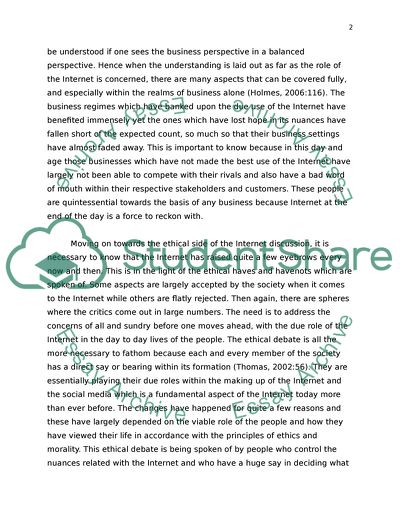Cite this document
(“The Internet and an Ethical Debate on Our Information Privacy Research Paper”, n.d.)
The Internet and an Ethical Debate on Our Information Privacy Research Paper. Retrieved from https://studentshare.org/information-technology/1612941-research-paper-please-choose-one-as-your-adept-from-the-listed-questions
The Internet and an Ethical Debate on Our Information Privacy Research Paper. Retrieved from https://studentshare.org/information-technology/1612941-research-paper-please-choose-one-as-your-adept-from-the-listed-questions
(The Internet and an Ethical Debate on Our Information Privacy Research Paper)
The Internet and an Ethical Debate on Our Information Privacy Research Paper. https://studentshare.org/information-technology/1612941-research-paper-please-choose-one-as-your-adept-from-the-listed-questions.
The Internet and an Ethical Debate on Our Information Privacy Research Paper. https://studentshare.org/information-technology/1612941-research-paper-please-choose-one-as-your-adept-from-the-listed-questions.
“The Internet and an Ethical Debate on Our Information Privacy Research Paper”, n.d. https://studentshare.org/information-technology/1612941-research-paper-please-choose-one-as-your-adept-from-the-listed-questions.


